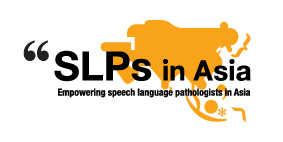Brief History of SLP development, Education and Licensure system
In early 2014, two nonprofit organizations from the U.S. (i.e., Speech Therapy Cambodia) (STC) and Australia (i.e., OIC Cambodia) arrived in Cambodia with plans to introduce speech therapy programs in Cambodia. . STC has focused on training in management of adult dysphagia, initially creating basic training classes in dysphagia management in three Phnom Penh public hospitals for working Cambodian doctors, nurses, and physical therapists. Teaching and training materials for dysphagia management specific to a Cambodian context were developed and refined over the years. STC holds a memorandum of understanding (MOU) with the Cambodian Ministry of Health and three government hospitals in Phnom Penh. In late 2021, STC contracted with the University of Puthisastra (UP), a prominent private Cambodian medical school, to offer a course in dysphagia management for working Cambodian hospital nurses, doctors, and physical therapists.
The resulting UP course focuses on expanding the services that STC had been providing. A requirement for participating Phnom Penh hospitals–in 2023 there were five–is that there must be a concrete plan to implement a robust dysphagia service in their facilities. The course is endorsed by the Nursing and Medical Councils of Cambodia and is funded by a generous Rotary International Global Grant. A post-graduate certificate will be awarded to trainees who pass university exams and practicum competencies. The year-long part-time course began in October 2023. The first cohort of 15 trainees will complete the training in September 2024. The course requires 190 hours of study specific to adult dysphagia, including 40 hours of online lectures and in-person workshops and 150 hours of practical workplace training. The trainers and course developers are SLPs from the U.S., UK, and Canada, all with extensive experience in dysphagia management. Trainers are accompanied during the practicum training by Rotary-funded Cambodian Khmer-English interpreters trained in medical and dysphagia-specific terminology. The course will repeat twice more, in 2024-2025 and in 2026.
OIC Cambodia’s vision is “speech therapy led by Cambodians and available to all who need it” (Salter & Yeah, 2016). Aiming for a contextualized, comprehensive scope of speech therapy across the nation, OIC used a system-strengthening approach. OIC initially trained teachers and social workers in early-childhood support, and raised awareness of ST need (Bryce et al., 2024). Mapping services and community supports, OIC has developed an evidence base of speech therapy knowledge, practice, resources and attitudes (Net et al., 2023). Service pilots helped reveal referral pathways and future jobs within Cambodia’s health and rehabilitation systems. Fostering self-advocacy groups, growing skills and resources in Alternative Augmentative Communication have facilitated inclusion of people with communication disabilities. By engaging both national leaders and provincial authorities, OIC has influenced policy and resources across Cambodia’s disability, health and education ministries (Bryce et al., 2024). OIC’s mission also includes supporting development of university degree programs. Current work includes a speech therapy competency framework to guide professional accreditation and support training development. In 2025, OIC will pilot 12 months of competency-based training within provincial health and rehabilitation services, including pioneering services within provincial hospitals and health centers. The organization continues to discuss course development with University of Health Sciences and other providers.
All Ears Cambodia (AEC) is a local non-governmental organization (NGO) established for the relief of persons with ear disease and deafness and the preservation and protection of hearing in Cambodia. It has been operational for over 20 years and has a formal Memorandum of Agreement with the Ministry of Health. The Ministry plays a largely facilitating role where AEC supports and provides government and non-state ear health care at multiple levels of the health system. It currently has five clinics across the country and works in partnership with over 80 local and international aid organizations and two public hospitals.
Focus is on the weakest and hardest hit. AEC has established a network of referral points to target vulnerable and high-risk populations. It recognizes government health equity funds registration to ensure free services for the poor. AEC’s current annual patient caseload is over 29,000. Services at AEC focus on primary ear health care and audiology. The medical work often revolves around ear infections, not least in children. The team meets international standards, treating disease using appropriate examination and therapeutic techniques. At the community level in Phnom Penh, AEC works closely with local wats (Buddhist temples) which play an important role in providing residential and social support for vulnerable elderly people and with schools to raise children’s awareness with respect to ear and hearing health. AEC also educates health workers at the community level. For example, district health nurses have been trained in the prevention of hearing loss and in recognizing signs of diseases of the ear. There is currently no national ear care strategic plan in Cambodia. In the meantime, AEC has created an in-house school of audiology and primary ear health care to address the paucity of specialists in these fields.
